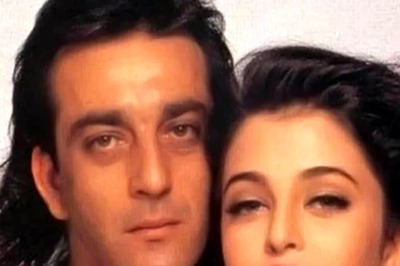
views
Baghdad: The trial of Saddam Hussein and seven co-defendants was adjourned on Monday until December 5 to give one defendant time to get legal representation, the chief judge said.
Former Vice President Taha Yassin Ramadan had rejected a lawyer appointed by the court after he was killed after the first session of the trial in October.
The judge, Rizgar Mohammed Amin, ordered the adjournment so the problem could be resolved.
Another defendant, Barzan al-Tikriti, one of Saddam's three younger half-brothers, told the judge he had cancer and that Iraqi President Jalal Talabani and Prime Minister Ibrahim Jaafari had agreed that he could receive medical treatment outside the prison where he is held.
After the assassination of two defense lawyers, a plot to kill the chief investigator and threats against witnesses, security for the court proceedings has been intense.
Some evidence was heard from behind protective screens in the courtroom in Baghdad's fortress-like 'green zone', and television footages from the courtroom was delayed by 30 minutes.
On October 19, when the trial began, it was adjourned for 40 days after just three hours to give the defense more time to prepare.
At the opening, the chief judge, head of a five-judge panel, was expected to consider various outstanding defense motions, including one for another adjournment of up to three months to continue preparing for such a legally complex trial.
The defense also might still need time to discuss strategy after the last-minute addition to their team of two international observers, former US attorney general Ramsey Clark and Najeeb al-Nauimi, former justice minister of Qatar.
Critics have accused Saddam of ordering mass killings and widespread torture over decades, but the legal charges brought against him so far refer to one specific incident.
He and the other defendants are charged with ordering the deaths of 148 young Shi'ite men from the town of Dujail, north of Baghdad, following an attempt on Saddam's life in July 1982.
The defendants could face death by hanging if found guilty.
Security concerns
The 40-day break has been dominated by security issues after one defense lawyer was murdered the day after the trial began and another on November 8, throwing proceedings into chaos. A third fled Iraq after death threats.
An Iraqi police said on the eve of the resumption that eight men had been detained and had confessed to plotting to kill the court's chief investigator, Raed Jouhi.
As chief investigator of the tribunal, Jouhi built the case against Saddam and has been the public face of the tribunal.
The Iraqi lawyers still involved in representing the eight defendants have agreed to return to court only after promises of undisclosed improvements in security were made.
A defense team spokeswoman said that the attendance of Clark and Nauimi had been approved by US advisers to the court.
But an official close to the court said on Sunday no application had yet been made by the defense team for international observers.
Clark, a controversial figure, was the US government's top legal official in the late 1960s before becoming an anti-Vietnam war activist and later a defender of figures including Slobodan Milosevic, on trial for war crimes at The Hague.


















Comments
0 comment